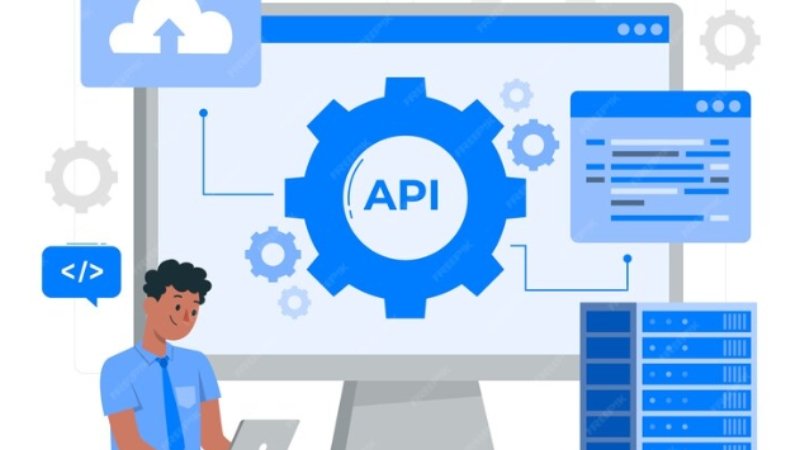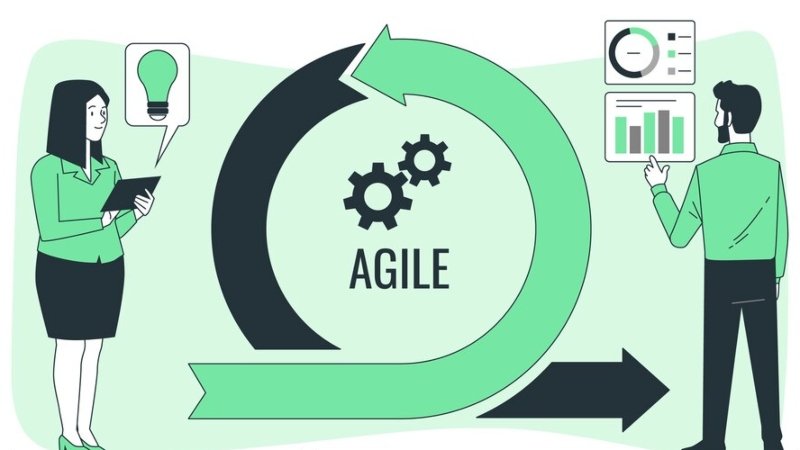When it comes to building complex web applications, choosing the right developer is one of the most important decisions you’ll make. Ruby on Rails (RoR) has become a popular framework for building dynamic, high-performance applications due to its simplicity, scalability, and speed. However, hiring the right Ruby on Rails developer to bring your project to life requires more than just technical knowledge. You need a developer who understands your business goals, can handle the complexity of your application, and has the ability to adapt and innovate when necessary.
Whether you are starting a new project or revamping an existing application, the developer you choose will play a crucial role in its success. In this blog, we will break down the key traits and skills you should look for when hiring a Ruby on Rails developer for complex web applications.
Key Traits and Skills That Make a Ruby on Rails Developer the Right Fit for Your Project
Pointer 1: Experience with Full-Stack Development
Ruby on Rails is often used to build both the front-end and back-end of web applications. For complex projects, it’s crucial that the developer you hire has a strong understanding of full-stack development. This means they should be comfortable working with both the server-side and client-side technologies required to build a complete web application.
Ruby on Rails developers with full-stack expertise are skilled in not just Ruby and Rails, but also JavaScript, HTML, CSS, and front-end frameworks like React or Angular. They are well-versed in how different components of a web application interact and can manage the flow of data between the server and the client seamlessly.
When you hire Ruby on Rails developers, it’s important to assess their experience in full-stack development. Ask them about their past projects and inquire whether they’ve worked on both the back end (such as managing databases and APIs) and the front end (including user interface development). A full-stack developer can provide a more cohesive approach to complex applications, reducing the need for multiple developers and ensuring smoother communication throughout the project.
Pointer 2: Proficiency in Database Management and Scalability
One of the most critical aspects of developing complex web applications is how well the database performs under heavy traffic and large datasets. Ruby on Rails developers need to have a deep understanding of database management and optimization. If your application needs to handle large volumes of data, you need a developer who can design scalable and efficient database schemas that support your project’s growth.
Ruby on Rails is often paired with databases like PostgreSQL or MySQL, and a skilled developer should be proficient in writing efficient SQL queries, optimizing database performance, and handling complex relationships between data entities. Beyond just database design, they should also know how to implement database indexing, caching strategies, and other techniques that improve performance.
When hiring a Ruby on Rails developer, ask about their experience working with databases, particularly in high-traffic applications. What strategies have they used to handle scalability? Can they design database schemas that minimize load times and improve query efficiency? Developers who can scale databases effectively will ensure that your application remains responsive even as your user base grows.
Pointer 3: Solid Knowledge of API Integration
In today’s connected world, most web applications need to communicate with other services and platforms via APIs (Application Programming Interfaces). Whether you’re integrating third-party payment processors, social media platforms, or cloud services, your developer should have experience in building, managing, and consuming APIs.

Ruby on Rails has built-in support for creating RESTful APIs, making it an ideal choice for building complex web applications that rely on external integrations. A skilled developer will not only know how to build robust APIs but will also be proficient in securing them using authentication protocols like OAuth or JWT. They should understand the importance of API versioning, error handling, and ensuring that APIs remain scalable as the application grows.
When you hire Ruby on Rails developers, ask them about their experience integrating APIs into past projects. Have they worked with external services or built custom APIs? Can they demonstrate how they’ve handled issues like rate limiting, data validation, and API security? A developer with solid API integration skills will ensure that your application can interact smoothly with other services while maintaining high performance and security.
Pointer 4: Strong Test-Driven Development (TDD) Practices
Building complex applications requires a high degree of reliability and stability. One of the best ways to ensure the quality of your codebase is through Test-Driven Development (TDD). This practice involves writing tests for your application before writing the actual code, ensuring that every feature is properly tested and validated.
Ruby on Rails developers should be well-versed in testing frameworks like RSpec, Minitest, and Capybara, which help automate testing and catch bugs early in the development process. TDD reduces the likelihood of defects, improves code quality, and makes future modifications easier since the developer can rely on existing tests to validate changes.
When hiring a developer, ask about their experience with TDD and how they implement automated testing in their workflow. Do they have experience writing unit tests, integration tests, and end-to-end tests for web applications? A developer who prioritizes TDD will ensure that your complex web application is stable, reliable, and scalable.
Pointer 5: Proven Experience with Agile Methodologies
For complex web applications, the development process must be flexible and adaptable. Agile methodologies like Scrum or Kanban allow developers to work in iterative cycles, making it easier to adjust to changing requirements and deliver incremental improvements. Ruby on Rails developers should be familiar with Agile practices and able to collaborate in a fast-paced, iterative environment.

Agile developers are comfortable with sprint planning, daily standups, and feedback loops, all of which ensure that your project stays on track and that the team can adjust quickly to unforeseen issues or changing business needs. Moreover, an Agile approach helps reduce the risk of project delays, as developers are continually testing, refining, and improving features throughout the development cycle.
When interviewing potential developers, ask about their experience working in Agile teams. How do they handle feedback and revisions? Have they worked with tools like Jira, Trello, or Asana to manage tasks? Hiring a developer with Agile experience ensures that your complex application will be built efficiently and can adapt to changes along the way.
Conclusion: The Right Developer for Complex Web Applications
Building a complex web application with Ruby on Rails requires more than just technical expertise—it demands a developer who can solve problems, think critically, and work collaboratively. By focusing on the key traits we’ve discussed you can identify the right Ruby on Rails developer who will bring your vision to life and ensure your project’s long-term success.
Before you hire Ruby on Rails developers, assess their experience, ask the right questions, and evaluate their problem-solving skills. The right developers won’t just build your application—they’ll help you scale it, optimize it, and ensure it remains a reliable asset for your business.
Visit here for more details.
